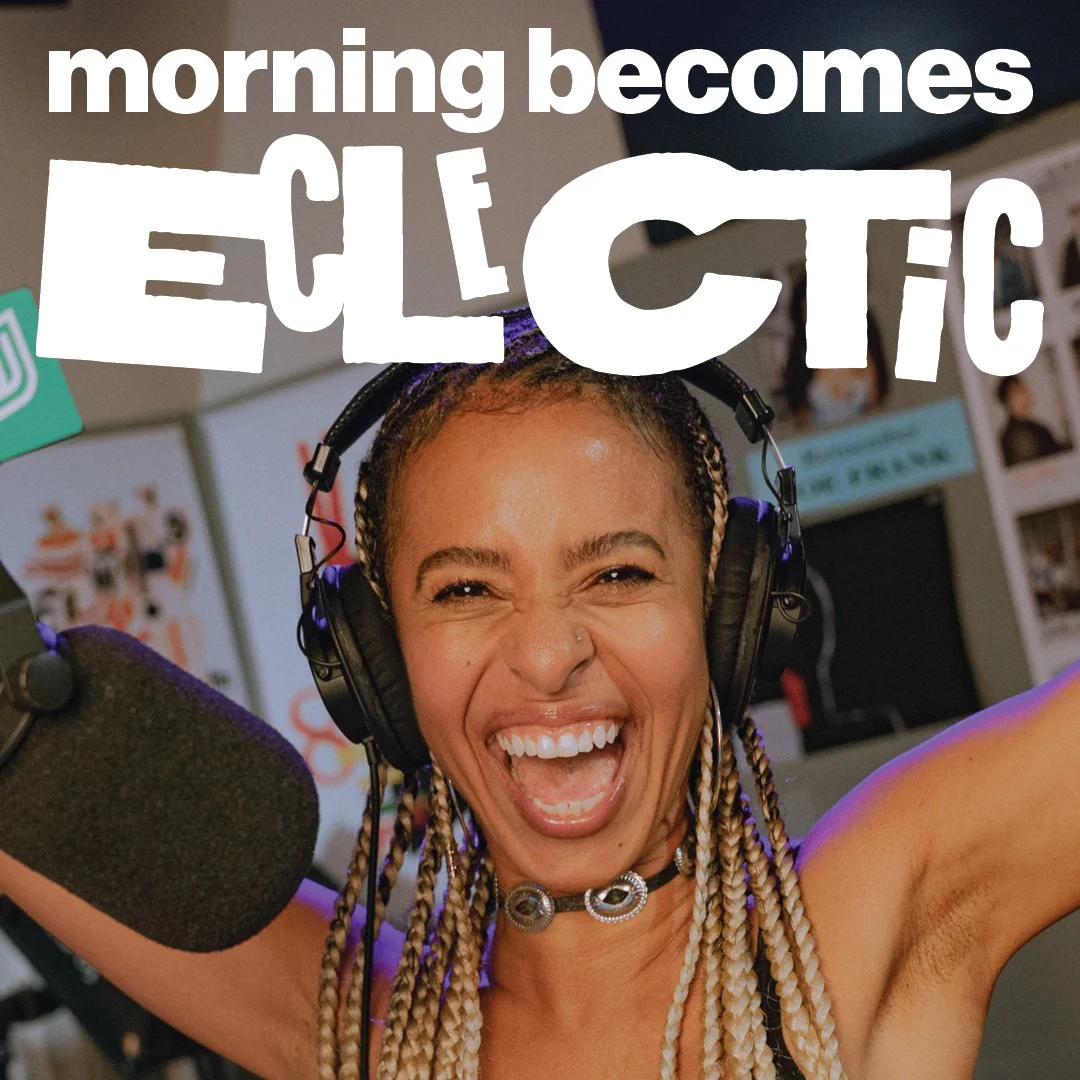Morning Becomes Eclectic: Yoko Ono's last collaboration with John Lennon, inspired by Rock Lobster
KCRW’s signature music program — defying format since 1977.

Legendary performer Robbie Robertson visits Morning Becomes Eclectic to chat about the new documentary "Once Were Brothers: Robbie Robertson and The Band" and share tracks from his latest album Sinematic.
Robbie Robertson on the early days of working with Bob Dylan:
So Bob Dylan was looking for a musical connection, because he had decided that he was going to — they called it — "go electric." And we were like, "what is that? Go electric?" As I've said before, we were born electric. And so that's all we knew. But anyway, we met up and he came to hear us and thought, "This could be great!" And so we tried, we played together and we thought, woah, I don't know if this is very good, you know, because he didn't have a lot of patience for working on the music.
So we just ran over some stuff and it was quite ragged. But he was like, whoa, that's good. Let's do it. And then the worst of it was, we weren't that confident about what we were doing with his music yet. But anyway, we went out in the world and we played all over the world and people booed us every night. And we thought for a long time, maybe they're right. Maybe we're not very good. Or maybe we weren't meant to do this. And then in that particular amount of time, I felt, [like] “no, no, no. We're getting like really good at this. This is different. This is special.”
On the 50th anniversary box set ofThe Band:
You know, it's one of those things that's like going back up into the attic and going through old trunks and stuff. It's, in this particular record, finding something that was just sitting around in the dust that makes you feel good. And putting together the 50th anniversary was a beautiful experience. And I worked on it with Bob Clearmountain [of Apogee Studios fame] because, in these things where we're taking something that was made in a very special way. And you cannot touch that. And the idea of going in and mixing this over again and I don't know if I would dare do it with anybody else besides Clearmountain.
It's like taking a painting and thinking, let's touch this up, you know? So anyway, Bob was very, very hesitant and very nervous about getting this so it didn't step on what was magical about it. We worked very, very closely together in getting it right. But all we wanted to do was bring you a little closer to the music. We didn't want to change anything, but we now have technology that we can remove some of that hiss and things that back then just came with the package.
On controlling his creative process:
To me, making a record is as much of the writing process as anything else. So I have this studio that I go to and it's set up like a cockpit. So in there, I have the guitars here. I have effects here. I have a keyboard there. And it's all in this circle. And I have an old Neve board. I'm writing and I'm recording and I'm making this thing, you know, turn into a real piece of music. And so if there's somebody else that I'm working with, a lot of times it feels like they're in the way. And if I can do this for myself, I can get to the point. And then once I'm ready, once I have what I'm looking for, then I can share it with other musicians and we can make the record.
How the new documentaryOnce Were Brothers came about:
They came to me and asked if they could make a documentary based on my book, Testimony. I said, well, yeah, if it's good, you know, just do your job really well and we'll be fine. But anyway, while they were doing that, I was making this album Sinematic. And I sat down one day to write another song. And I wrote this song “Once Were Brothers.” And it really was reflective of the brotherhood of the guys in the band that are no longer with us. So when I played it for the film makers, they said, "Woah, this works so well for the film and we even want to call the film Once Were Brothers." So that turned out really nice.
KCRW’s signature music program — defying format since 1977.
Polo & Pan drop original mixes just for KCRW. Every Friday in February.